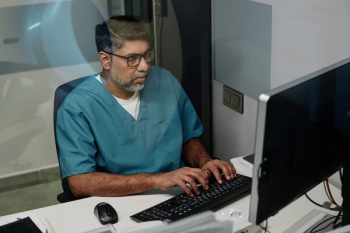
A Matter of Perspective
Why it always helps to put things into perspective.
Longer-term readers may recall
If one learns anything from reading classical literature, it’s that the gods don’t much like it when you get too pleased with yourself, and that their punishment can be unrelenting. Thus, subsequent to that self-celebration mentioned above, I’ve had at least two more rounds of “Now it’s fixed.” (No, it wasn’t.) “NOW it’s fixed.” (Nope.)
So it was that, during a windy little rainstorm this past week, a day or two after the latest multi-thousand-dollar fix had been completed, I found myself once again stepping into my kitchen in between reading cases to fiddle with towels and buckets. Also to snap photos for transmission to the roofer/contractor who’s overseen the last few stages of this never-ending project.
Now, there have been times during this saga when the recurrence of the thought-we-fixed-it leak has induced fits of rage and/or despair. Especially when the most recent fix had been particularly pricey, and there wasn’t much left in the bank to fund another attempt anytime soon. This time, however, rather than feeling like ripping my hair out in fistfuls, I found myself more motivated to laugh, if bitterly, than anything else.
It could be because my financial situation has improved to the point where I don’t have to wait a few months before I can afford to fix something else. Or it could be that there are a diminishing number of physical aspects of that part of the house that haven’t been repaired/replaced yet; sooner or later there won’t be anything left that could possibly still be defective.
More from the author:
It’s at least partially that, when you’ve been through an unpleasant situation enough times, you get accustomed to the point that it doesn’t quite seem as bad as it once did. Especially if, while it’s happening, other, worse things are happening-in your own life, that of friends or family, heck, even the news. Eventually, things fall into perspective.
This also works in reverse. If someone tells you that voice-recognition technology isn’t perfected yet, you might not even shrug in response. If you start using voice-rec to enter your text messages and emails, and have its errors trip you up multiple times each day, your response might be a knowing nod. If you’re working at a pay-per-case job in diagnostic radiology, where it messes with virtually every report you generate (making you look foolish to referrers and even costing you productivity), you might just erupt into a frustration-venting “you’re telling me?!??” tirade.
Getting good and buried in the daily grind, one is bound to develop a list of pet peeves and personal demons. If only X, Y, and Z weren’t factors, surely the workday would be a pleasure-except either they aren’t going anywhere, or X does magically vanish but now one starts to notice that W is pretty irritating, too. Get down to the nitty-gritty of any situation, and the longer you operate at that level, the more its molehills start to look like mountains.
Fortunately, no matter how looming and terrible such things can seem when in the thick of them, it’s easy enough to put them back in perspective. Standing back from the situation-whether it’s a stroll out of the reading-room or a vacation half a world away-can work like a charm. Of course, that requires not taking your work with you; if you’re still dwelling (let alone fuming) on the frustrating minutiae of your job while you’re supposed to be thinking about other things, your perspective really isn’t changing, is it?
Keeping things in perspective isn’t a matter of intensive self-reflection or brilliant epiphanies. Thoughts like “At least you’ve got your health” can seem downright trite. That doesn’t detract from their truth, nor should it diminish their value in this venue. Which would you rather have, for instance: A constant daily battle with faulty voice-recognition, or a refractory case of hypertension that will ultimately threaten your heart, brain, kidneys, etc.? (One might argue that battling with voice-rec can ultimately bring about the elevated pressure, I suppose.)
Similarly: Feeling hassled with workplace politics or other maladaptive conditions in your hospital or imaging center? Consider how much less fun it would be to work construction. Odd hours, inclement conditions, etc.
Related article:
Did you just receive word that there won’t be much (or any) of a bonus this year? That the latest rejiggering of RVUs stands to unjustly punish your personal bottom line? True, it’s never much fun to see your income take a hit-but at least you’re in a field where doing your job probably means you’ll get to keep it. As opposed to some business-world gig where the wrong guy gets promoted to VP and summarily replaces you, if not your whole division.
If all else fails, you can always go for the largest-scale perspective possible: How utterly massive the universe is, how insignificant you really are by comparison, and thus just how much less important your daily woes are in the grand scheme of things. (The “
Newsletter
Stay at the forefront of radiology with the Diagnostic Imaging newsletter, delivering the latest news, clinical insights, and imaging advancements for today’s radiologists.












